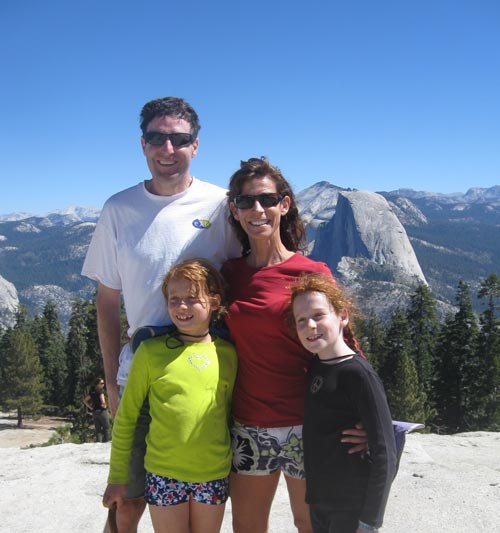Gerald Wluka
When Gerald realized he was “very capable, but impossible to manage”, his solution was to start his own company. Now a successful entrepreneur living in the San Francisco Bay Area, his current focus is CompilerWorks, which Gerald describes as “a software company that is very geeky”.
Gerald recently spoke to us about the importance of interdisciplinarity, what really makes a good startup, and the subjectivity of ‘success’.

In my eyes my career has been successful, but in the world of the San Francisco Bay area, I am small fry. I have neither founded nor started a multi-billion-dollar company. That is the common perspective of success in this area.
However, from my perspective, I am successful. I have an amazing family and live comfortably in one of the most expensive regions of the world, all while co-founding and running CompilerWorks.
Prior to CompilerWorks I co-founded another software company (in partnership with a law firm) that supports compliance with visa laws, and before that I took a handful of years off work – I spent lots of time with my kids when they were young! I had the ability to do that because I co-founded and sold another little software company (our software was used in call centers), and before all of that I was a consultant at Bain & Co.
When I graduated from Melbourne (Physics and Electrical Engineering), I failed to find a technically focused job in Melbourne that suited me (29 years ago!) That is why I went to work in consulting at Bain & Co. It was a great job that opened my eyes to the wider world. I ended up at Stanford Business School, which landed me in the San Francisco Bay Area that I now call home.
It was after the dot-com crash [of 2000] that I co-founded my first software company, Amae Software. We had a great idea, but no-one was buying new ideas after the dot-com crash. I thought maybe we could mock something up that would suffice to convince someone to invest.
At that stage having not touched computer programming for 15 years, I used a drag and drop tool to develop the mock-up. Then I looked at the code the tool wrote and thought, ‘This is much easier than what I had to do 15 years ago!’ From then on, it was simply working to learn how to develop modern software!
Of course, our success came not merely from writing the software, but from understanding who our customers were, what motivated them, and how to turn our relatively simple software into a solution that customers would eagerly pay for! That is what the business education and experience at Bain & Co. taught me.
For a software startup to be successful, that means collecting more money from customers (and investors) than it costs to develop and maintain the software. I would expand that a little. A successful startup can mean so many things. It starts with understanding what success means to you.
I chose to go to business school with the main objective of discovering what I wanted to do with my life. The answer I found was simple. I wanted to have a family and live comfortably. Of course, by that stage in my life I learnt from those I had worked for that I was capable, but impossible to manage. Creating my own thing was the answer for me.
I still have humble ambitions. My biggest achievement was that first software company because it gave me the financial freedom to pursue more interesting endeavours. With that said, from an ‘outsider’s’ perspective CompilerWorks probably looks like the biggest achievement – we have a very experienced global team working on interesting technical problems and many on the team say this is the most fun job they have had in their careers.
I truly enjoy that I am creating an opportunity for everyone on our team to do the work that they find rewarding. And of course, we have big-name customers and partners who truly value what we deliver to them.